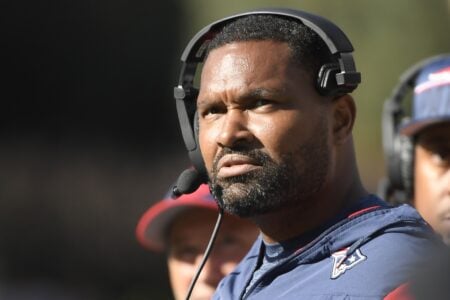Ignoring the moral question, if the fine for murdering someone was negligible, and at the end of a very short sentence there was a pot of gold waiting for you as a reward for committing the act, you'd find quite a few takers. So, I guess I don't buy the metaphor ultimately. In fact, I WISH there was something equivalent to a LIFE SENTENCE in the Branch case, but there isn't. A life sentence is usually a deterrent for committing murder. And right now it's obvious that Branch has not been deterred enough. This is what I was originally arguing. I would like to see the NFL institute the equivalent of a life sentence (i.e. force players to end holdouts by the regular season or else they have to fulfill the last year on their contracts in the next season).
To further the analogy for you (because in the NFL it's all about risk reward) in order to collect that pot of gold you would have to be willing to risk being bent over several times a day by your fellow inmates and willing to assume none of them was in such a foul mood he decided to use the shiv he's been working on in shop to slit your throat before you finish your short sentance. Deion not only risks being injured if he returns to the field, he risks he absent-mindedly trips over a toy while visiting one of his three children and their two mothers or some nitwit he's playing semi-pro basketball with as part of a celebrity promotional tour doesn't accidentally plant on his foot in mid stride or he doesn't befall some other bizarre non-football related injury between now and actually achieving FA.
I think players and agents view it exactly as a tacit allowance of holdouts. Losing $1 million as opposed to risking the loss of $30 million is enough of an incentive for Branch to interpret the 10-week provision as a good option, and since that option is there, obviously the players and agents consider it a weapon in a negotiation. The owners allow it by agreeing to it.


















